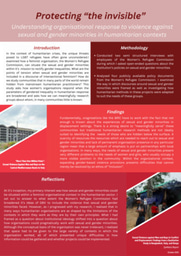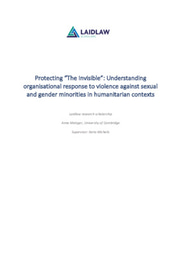LiA Final Reflections
My time interning at the Self-Employed Women’s Association in Jaipur and Delhi, India was one of the most formative experiences of my life. I am so grateful to my wonderful colleagues who allowed me to get the most out of this unique opportunity.
SEWA is the trade union representing India’s informally employed women. Since over 90% of women lack formal employment in India, the organisation has a huge base of members. It was founded in the 1960s by lawyer Ela Bhatt who was interested in grassroots movement building, predicated on the philosophy that women had the ability to empower themselves.
Today, SEWA carries out a range of development projects across India. They remain an organisation that’s led from the bottom up and they’re constituted by many local groups and regional affiliations all innovating in different ways.
I was responsible for developing agricultural policy for rural Rajasthan. Rajasthan is one of the largest states in Northern India where around half the population are employed in farming. The state is integral for India’s food security because it is where key crops like millet, cotton, legumes, and tobacco are grown. However, it’s also a region that is facing severe environmental challenges. Like much of India, it’s susceptible to fluctuations in monsoons which have a knock-on effect on crop yields. Over recent years, the dry parts of the state have been particularly affected by climate change and there have been continual problems with water scarcity.
Women in Rajasthan contribute a huge amount to the agricultural economy of the region. They tend to work on family farms or are employed as labourers on the land belonging to another. It’s rare that they own any land themselves. They are underrepresented at every level of decision making despite the significance of their contribution. SEWA Rajasthan was undertaking research into how best to support these women. In order to gain insight into their situation, I undertook fieldwork in the Alwar district of Rajasthan. We conducted focus groups with women in the surrounding villages, talking to them about their work, their financial situation, education, health and family. It was inspiring to meet local community leaders who dedicated so much of their time to organising and supporting the women working in the sector.
In light of this research, I summarised my findings in a report and made a series of recommendations for how the organisation could best support women in Alwar. One area I specifically focused on was how new technologies could be rolled out to create more equitable agriculture. Currently, distribution of both farming technology and digital systems disadvantages women. However, there’s lots of potential for SEWA to expand women’s access to these services, thereby improving productivity and resilience to unforeseen changes in the market.
By the end of my seven weeks, I felt as if the work I’d undertaken had been challenging, but ultimately meaningful. I’d been made to confront topics that I had little experience in and had to quickly come to terms with working in a new, unfamiliar context. Intellectually, it was stimulating to learn so much so quickly. The more long-lasting impact, however, was the incredible relationships I forged with the women I met. I feel so lucky to have had the opportunity to have undertaken work that so profoundly expanded by cultural horizons.


Please sign in
If you are a registered user on Laidlaw Scholars Network, please sign in